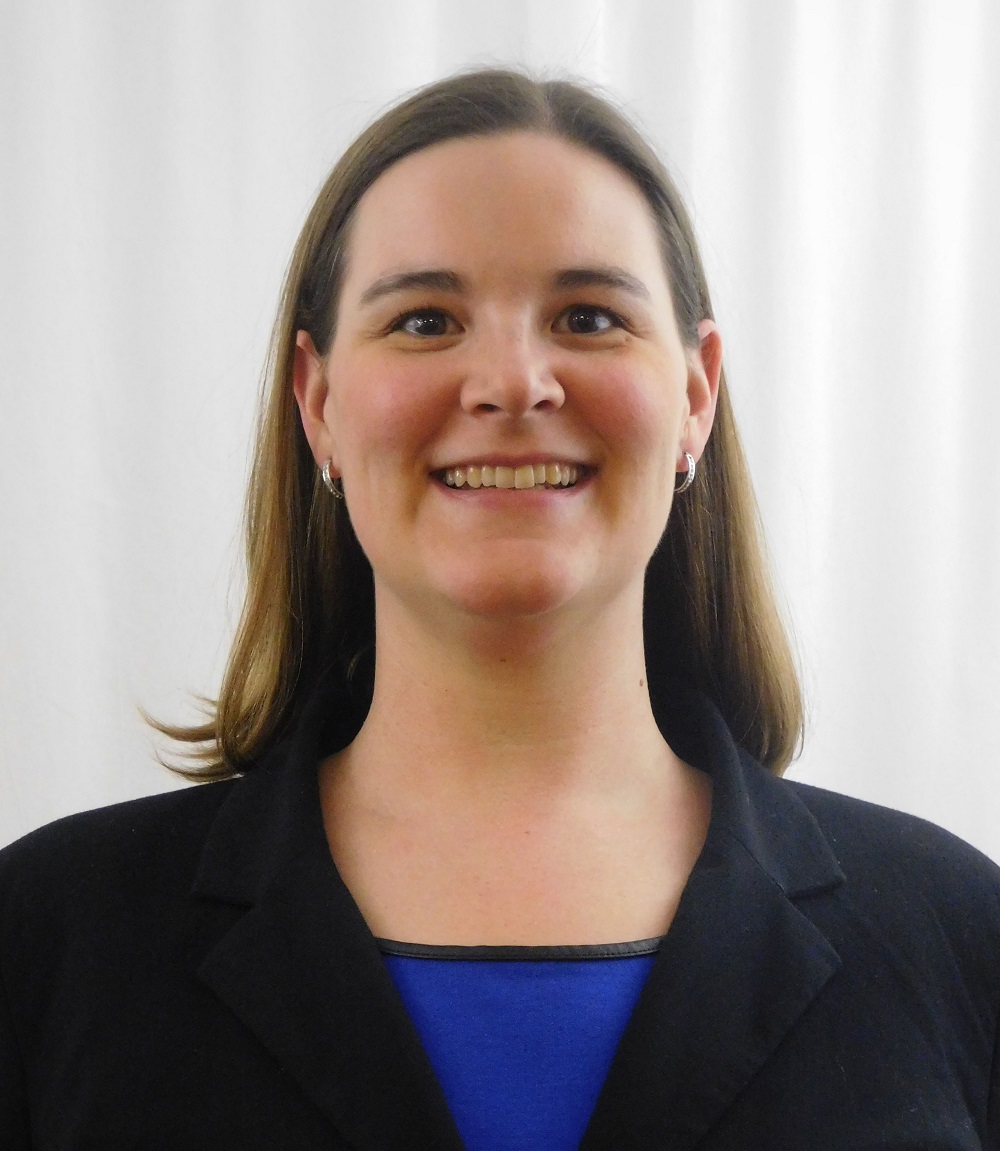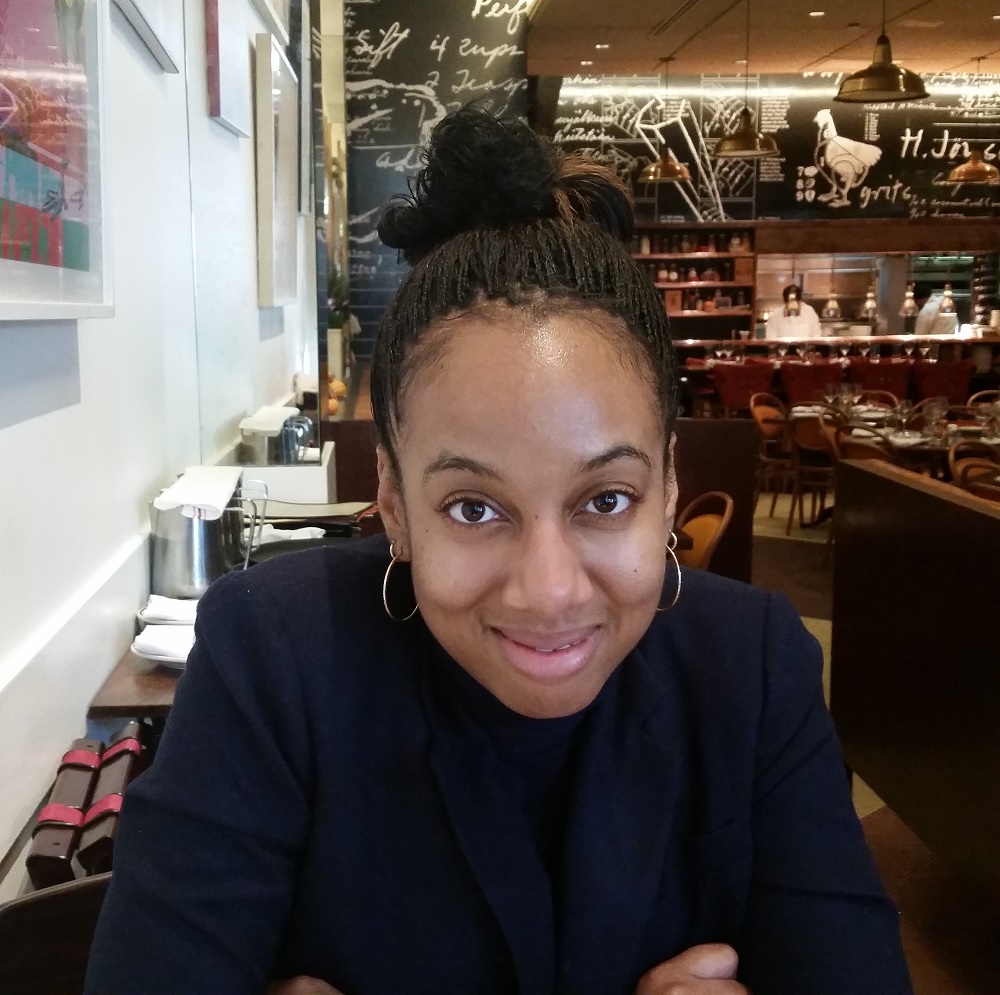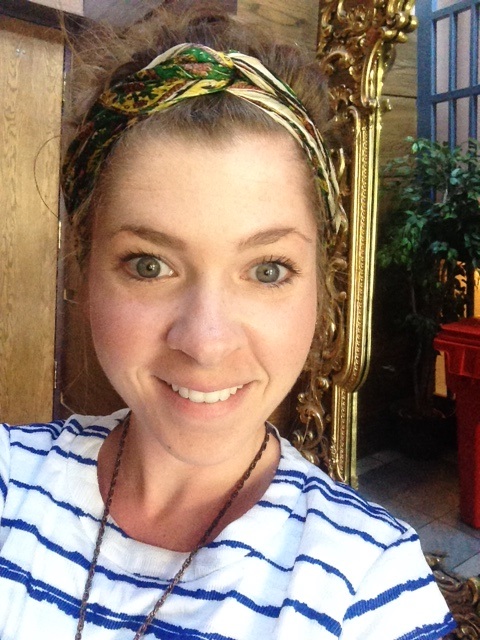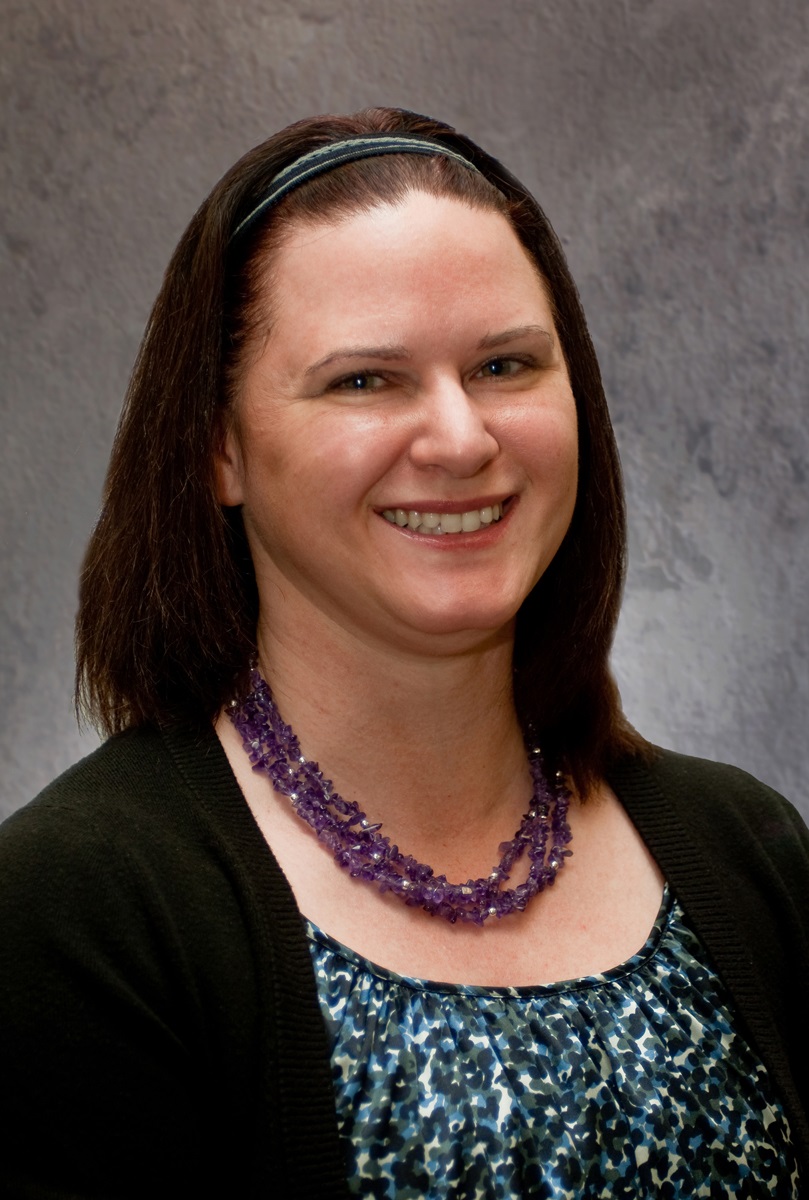Nominating Committee
Katie Blank
L'ael Hughes-Watkins
Johna Picco
Portia Vescio
Katie Blank
 Employment: Employment:
Electronic Records Manager, Marquette University, Department of Special Collections and University Archives, 2013-present; Special Librarian and Archival Studies Program Assistant, School of Information Studies, University of Wisconsin–Milwaukee, 2009-2013
Education:
M.L.I.S. with Archival Studies Concentration and M.A, History, University of Wisconsin–Milwaukee, 2011. B.A., History, University of Wisconsin–Milwaukee, 2004
Professional Activities:
MAC: Member since 2008; 2016 Annual Meeting Local Arrangements Committee, 2014-2016; Education Task Force, 2009-2010
SAA: Member since 2005; Reference, Access, and Outreach Section-Electronic Records Working Group, 2014-present; Regional Archival Associations Consortium Educational Subcommittee, 2015-present; Member of the Student Program Subcommittee & Chair of the Student Paper Session for the 2009 Annual Conference
Marquette University: Academic Librarians Assembly: Vice President/President Elect, 2015-2016, Compensation and Benefits Committee, 2014-2017; Library Public Interface Committee, 2014-2017
Other: SWAG (Southeastern Wisconsin Archives Group): Member since 2009, Co-chair, 2014-2016. Special Libraries Association–Wisconsin Chapter: Treasurer, 2012-2013
MAC’s membership comes from a wide variety of institutions and personal backgrounds. As a member of the MAC Nominating Committee, describe how your skills and experiences will help you promote diversity in MAC’s leadership.
MAC’s commitment to diversity is evident in the past Strategic Plan that focused on fostering a diverse generation of archivists to the current plan that now focuses on bringing our diverse members into leadership positions. My priority as a member of the MAC Nominating Committee is to look at our members and recognize potential MAC leaders who support diversity in its many forms, including gender, racial, and ethnic, as well as geographic, institutional, and career phase diversity.
My early experience as an ESL tutor and as a nursing assistant helped form the basis for my interests in social justice and diversity. I pursued this more directly in my graduate school research, which resulted in a history thesis that examined Milwaukee nursing school integration during World War II, and an SAA presentation on social memory and access in Native American and Indigenous communities.
I enjoy connecting with people and connecting people to each other. While employed at UW–Milwaukee I helped arrange archives fieldwork and the Archives Alternative Spring Break, connecting students and archivists at a diverse range of institutions across the country. I frequently encouraged and nudged individual students to apply for internships, jobs, and scholarships that would be a good fit for their interests and abilities. I also had the privilege of gaining an international view of archives and archival practice. In 2009 I led a group of students to Germany to help with the recovery effort after the collapse of the Historischen Archivs der Stadt Köln (Historical Archives of the City of Cologne). I assisted with two study abroad courses, one to Scotland and the other to Australia, which exposed me to different traditions in recordkeeping across countries, including community and Indigenous archives.
In my current position at Marquette University I work with students, faculty, staff, and a public that represents a diversity of backgrounds and experiences. It is particularly satisfying working with student organizations that have little prior historical documentation to preserve evidence of their activities. I am also working with my colleagues on strategies to best preserve electronic materials from the various organizations, including social justice organizations, whose materials we collect.
I look forward to using my skills connecting people and my experience to allow me to identify and encourage a diverse range of new MAC leaders.
Lae’l Hughes-Watkins
Bio:
 I serve as an Assistant Professor and University Archivist at Kent State University. I am responsible for overseeing the University Archives program, which includes acquiring, managing and providing access to historical records pertaining to Kent State University. I administer the Kent State Shootings Oral History project; participate in instruction, reference assistance, and outreach. Additionally I manage all the social media platforms for the Department of Special Collections and Archives and co-administer the records retention program. I serve as an Assistant Professor and University Archivist at Kent State University. I am responsible for overseeing the University Archives program, which includes acquiring, managing and providing access to historical records pertaining to Kent State University. I administer the Kent State Shootings Oral History project; participate in instruction, reference assistance, and outreach. Additionally I manage all the social media platforms for the Department of Special Collections and Archives and co-administer the records retention program.
I received my M.L.I.S. from Kent State University, with an M.A. in English and a B.A. in Journalism and Political Science from Youngstown State University.
My professional activities/organizations include as follows:
- SAA’s Archives and Archivists of Color Roundtable Nominating Task Force (2014-2015)
- Reviewer for SAA’s Diversifying the Archival Record Case Studies (2015-present)
- Professional intern for SAA’s Diversity Committee (2015-2016)
- Ohio History Connection expert panel reviewer for the Ohio History Fund (2015-2016)
- Board member for the Ohio Local History Alliance (2014-2015)
- Member of ALAO (American Library Association of Ohio)
- Midwest Archives Conference
MAC’s membership comes from a wide variety of institutions and personal backgrounds. As a member of the MAC Nominating Committee, describe how your skills and experiences will help you promote diversity in MAC’s leadership.
As a graduate student at Youngstown State University, I had the opportunity to conduct archival research on Fay Jackson, the first African-American female foreign correspondent for the Associated Negro Press. I traveled to the archives at the University of Southern California, University of California, Los Angeles, the Schomburg Center for Research in Black Culture in New York, and the Huntington Library in San Marino, California. It was during this process that I became inspired by the work of members within the archival profession. I was deeply impacted by the idea that a person could attain a position which allows them to assist individuals seeking to uncover forgotten lives, moments in time, or life-changing events. Serving in a role where one is charged with the action of acquiring, managing, and making history accessible is an awesome responsibility. It is a responsibility that should not be reserved for an elite few.
After becoming the first African-American female university archivist at Kent State, I began to focus on the critical question: what is the documented history of diversity at Kent State University? After an assessment of our holdings it became clear that we had a gap in our records pertaining to historically underrepresented communities—more specifically, black student life. As I am charged with the responsibility of being a steward of the university’s institutional history, I continue to look through the lens that reminds me of the professional and social biases that plague the profession.
In the fall of 2013, I launched the Kent State Black Campus Movement project (BCMP). The black student movement was one of the most significant developments of the black student experience at U.S. colleges and universities in the 1960s and early 1970s. The goals of the Kent State BCMP is to collect correspondence, diaries, photographs, newsletters, oral histories, and a variety of personal and organizational materials documenting the Black Campus Movement from 1965-1970 at Kent.
While the project is still in its early stages, it has collected nearly twenty oral histories and two collections. The BCMP has led to a successful photo exhibit and has been the focus of many class projects and will serve as a primary resource for a Special Topics class in the spring of 2016.
These efforts and my personal experiences are what dictate my desire to see a wide breadth of stewards from various backgrounds serve as leaders not only within MAC’s leadership but also throughout the entire archival community.
“We are trying to construct a more inclusive society. We are going to make a country in which no one is left out.” – Franklin D. Roosevelt
Johna Picco
 Employment Employment
Associate Curator of Special Collections at The Filson Historical Society, Louisville, Kentucky
Education
M.L.I.S., University of Illinois at Urbana-Champaign; B.A., Ball State University
Professional Activities
SAA, Member; MAC, Member and Assistant Editor for “Up-and-Comers” newsletter column; Kentucky Council on Archives, Member and Board; Society of Architectural Historians, Member; American Institute of Architects Central Kentucky Chapter, Participant but not Member
MAC’s membership comes from a wide variety of institutions and personal backgrounds. As a member of the MAC Nominating Committee, describe how your skills and experiences will help you promote diversity in MAC’s leadership.
In other words, what will a white girl who works in a nearly all-white institution do to promote and/or represent diversity? Well, before I begin, I should mention that I am of the camp that strongly advocates the idea of “less talk, more action.” What do I mean? Well, for starters, let’s stop feeling good about ourselves by utilizing buzzwords like diversity. Let’s stop treating the topic like some checkbox that must be ticked off our list. Instead, let’s start getting into the nitty-gritty of it by truly thinking about what we mean when we talk about diversity. And just to be clear, by “let” and “us” I mean everyone, all the time. Not just this instance and application.
I’ll use workplace diversity as an example. A diverse staff isn’t accomplished by simply adding a person of color to staff (umm, can we say tokenism?); diversity also means the inclusion of women, LGBT, those with disabilities and other underrepresented groups. Diversity means getting comfortable with being uncomfortable. If we trumpet a need and interest in diversity, then that need must be met with open arms and minds not just to the person but also to their opinions and approaches. It means retooling the way we operate in meetings, the way we consider a topic, and our openness to change. A disconnect exists when an institution’s (and we all know too many …) unsung motto is “but that’s the way things have always been done, so …” while concurrently it advertises itself as open and diverse. One cannot be both dogged in their ways and truly supportive of diversity. If we want to be diverse versus simply talking about diversity then we need to start creating environments where diverse individuals and their ideas are welcomed.
So, to answer the question: I make waves. I am unafraid of being confrontational when the situation requires it. I stand up for others (and myself). I refuse to follow the status quo when the status quo does not work.
Portia Vescio
 Current Employment Current Employment
Assistant Director, Michigan State University Archives and Historical Collections. Previous employment: Public Services Archivist, Michigan State University Archives and Historical Collections, Technical Services Archivist, Michigan State University Archives and Historical Collections, and Manuscripts Librarian, New Mexico State University Libraries
Education
M.L.I.S., Indiana University; B.S. Chemistry, Massachusetts Institute of Technology
Professional MAC Activities
Development Coordinator, 2013-2015; Local Arrangements Committee Co-chair, Grand Rapids, 2012; Archival Issues Awards Committee Chair, 2009; Membership Committee, 2003-2007
MAC’s membership comes from a wide variety of institutions and personal backgrounds. As a member of the MAC Nominating Committee, describe how your skills and experiences will help you promote diversity in MAC’s leadership.
As an archivist part of my job is to know not only what is in my collections, but also to know what is not in the collections. I need to be able to identify which groups are underrepresented or missing and then to actively seek out the records of those groups. When it comes to diversity, I think not only in terms of race and religion but also in terms of size and type of institution, geographic location, and level of experience.
I have served on a lot of committees, and one thing I learned is that everyone’s perspective contributes to the conversation. The more diverse the group, the more likely it is to have a conversation that includes multiple perspectives. As part of the MAC Nominating Committee, my goal would be to ensure we have a diverse pool of candidates for MAC’s leadership.
|